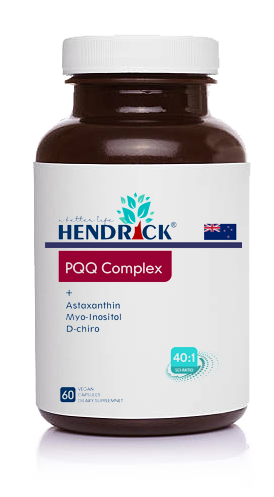5 Types of Cold Remedies to Alleviate Symptoms

A cold may cause unpleasant symptoms such as a stuffy nose, cough, and sore throat. While there is no cure for the common cold, various over-the-counter (OTC) medicines and home remedies can help lessen your symptoms as you recover.
1. Cough Medicines
The most common OTC cough medicines include:¹
- Expectorants, such as guaifenesin, are commonly used for a wet or productive cough and work by thinning mucus and making it easier to cough up. Guaifenesin is found in OTC medicines such as Robitussin or Mucinex.
- Cough suppressants, such as dextromethorphan, are used to suppress a cough. You'll often see them combined with guaifenesin in products such as Robitussin-DM or Mucinex-DM, where the DM stands for dextromethorphan.
Pro Tip: Measuring Liquid Medicines
While it may seem convenient to use a kitchen teaspoon or tablespoon, it's best to use the measuring device that comes with your medication. Kitchen measuring tools aren't as precise and can lead to taking too much or too little. 2
2. Pain and Fever Medicines
Medications for pain and fever fall into two categories: 1
- Analgesics such as Tylenol (acetaminophen) can help with fevers and mild pain.
- Nonsteroidal anti-inflammatory drugs (NSAIDs) can help with fever and pain, as well as inflammation (swelling). Examples of NSAIDs include Advil (ibuprofen) and Aleve (naproxen).
3. Antihistamines
Antihistamines are commonly used for a runny nose, watery eyes, and sneezing. 3
Older antihistamines like Benadryl (diphenhydramine) work well but are known for causing more side effects such as drowsiness and dizziness. 4
Newer antihistamines are often preferred because they are effective but tend to cause less drowsiness. 4 Examples of these newer antihistamines include:
- Allegra (fexofenadine)
- Claritin (loratadine)
- Xyzal (levocetirizine)
- Zyrtec (cetirizine)
4. Decongestants
Decongestants can help with a stuffy nose and include:⁵
- Oral decongestants, such as pseudoephedrine, which is typically found behind the counter. You will need identification to purchase it. Another oral decongestant, phenylephrine, is found over the counter, but the FDA has proposed its removal after finding it is not effective. 6
- Decongestant nasal sprays, such as Afrin (oxymetazoline), come in the form of nasal sprays that are sprayed into the nostrils. While they may help relieve a stuffy nose, they can only be used for a maximum of three days. After that, they may actually worsen congestion (this is called rebound congestion).
5. Saline Nasal Sprays
Saline nasal sprays contain purified salt water and can help keep nasal passages moist. Some people prefer other methods, such as neti pots or nasal rinses, to rinse the nasal passages with nasal saline. 1
6. Honey
Honey can help with coughing and soothe a sore throat but should never be used in children under 12 months old. 7
7. Cough Drops or Lozenges
Cough drops or lozenges can be an effective way to soothe a sore throat and tame coughing. They are formulated with ingredients like menthol, which is meant to reduce throat irritation and ease the cough reflex. 8
8. Humidifier
A humidifier adds moisture to the air, helping to relieve a stuffy nose and break up mucus. Cool-mist humidifiers are especially recommended for children over vaporizers, which boil water and can cause burns. 9
9. Hydration
Stay hydrated by drinking fluids. Foods and drinks like chicken soup, tea, and popsicles can soothe an irritated throat. You can also try gargling with salt water (mix one teaspoon of salt into one cup of warm water, gargle, and spit). 10
10. Rest
While recovering from an illness, stay home and get plenty of rest, if possible. Try to sleep eight to ten hours a night while you recover. 10
Do Antibiotics Work for Colds?
Antibiotics are used for bacterial infections. Since the cold is caused by a virus, antibiotics will not cure a cold. 11 Instead, you can focus on getting plenty of rest and taking OTC medicines to relieve your symptoms.
Tips for Choosing the Right Cold Remedy
Walking down the cough and cold aisle of your pharmacy can be overwhelming. Here are some things to keep in mind when choosing a remedy:
- Single vs. combination products: Combination products may seem convenient but contain multiple active ingredients. Experts often recommend single-ingredient products to target the specific symptoms you're experiencing and reduce the risk of side effects or drug interactions. 12
- Consider age: OTC cough and cold medicines are not recommended for babies and younger children under 4. They should only be used in children aged 4 to 6 years old if recommended by their pediatrician. After age 6, OTC children's cough medicines are usually safe to use, as long as the healthcare provider gives the green light. Antihistamines, like Benadryl, should not be given to children under 2.7
- Check the ingredients on the label: Read the ingredient list when buying an OTC cough and cold product. Many drugs have similar brand names, and the only way to be sure of the ingredients is to carefully read the label. Ask your pharmacist for help understanding the ingredients and what they do.
- Consult a healthcare provider: Always check with your provider before using a cough or cold product for the first time, especially if you have other health conditions or take medications.
When to See a Healthcare Provider
Sometimes it can be easy to confuse cold symptoms with another condition, such as allergies, the flu, or a bacterial infection, such as strep throat. It's best to check in with a healthcare provider if you have any of the following: 13
- Pain when swallowing
- Ear pain
- A cough that lasts for several weeks
- Vomiting
- Fever that won't go down or go away
- Symptoms worsen or last more than 10 days
Key Takeaways
- While there’s no cure for the common cold, OTC medications like expectorants, cough suppressants, pain relievers, and antihistamines can help ease symptoms during recovery.
- Single-ingredient OTC products are often safer and more effective than multi-ingredient remedies, especially when tailored to your specific symptoms.
- Staying hydrated, using saline sprays or humidifiers, and getting plenty of rest can support healing and make cold symptoms more manageable without medication.







